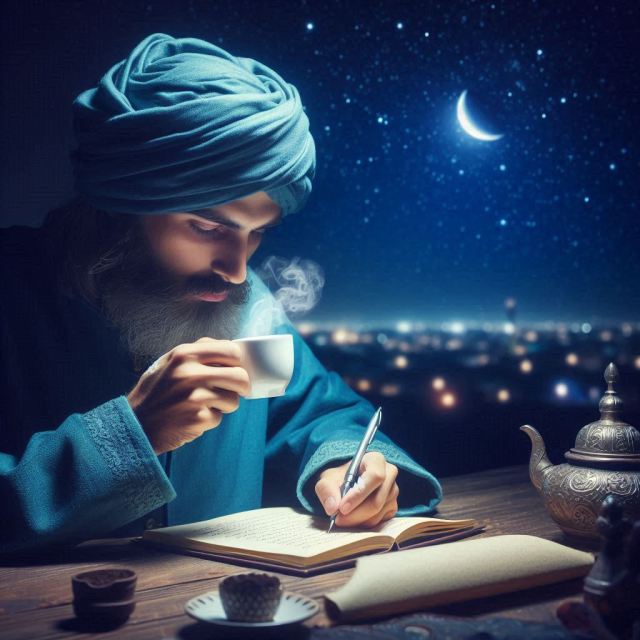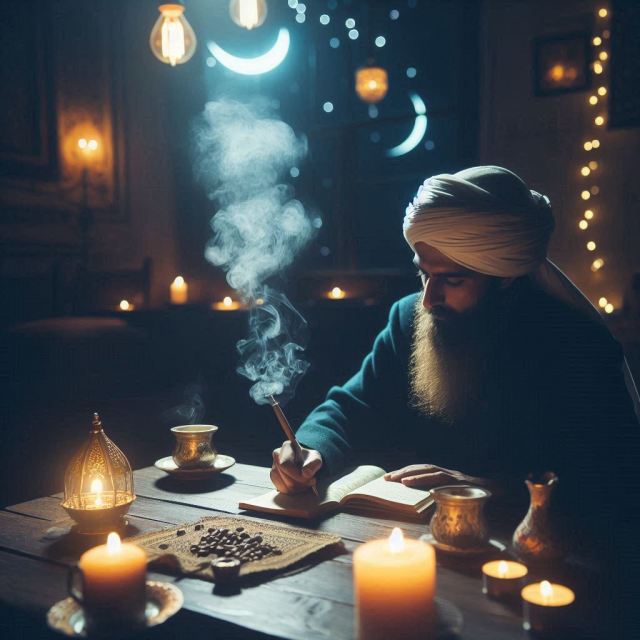From Sufi Devotions to Modern-Day Spirituality
There’s a curious and fascinating revival happening in the world of Islamic spirituality, one that doesn’t revolve around grand theological debates or rediscovered manuscripts, but rather something far more familiar and aromatic: coffee. Yes, coffee.
Today, a growing number of popular Muslim speakers, spiritual influencers, and scholars are rekindling a centuries-old association between coffee and worship. Across YouTube talks, TikTok shorts, and blog posts, the drink is being reimagined not just as a pick-me-up, but as a barakah-laced beverage fueling ibadah (worship), reflection, and nightly devotions. For many, it’s no longer just a morning ritual, it’s a deeply spiritual act.

Insomnia or Invitation?
One speaker, in responding to a question about insomnia, offered a profound reframing:
“There’s no insomnia for a Muslim. It just means Allah wants you awake to do something meaningful. It’s a gift from Allah.”
In that context, being unable to sleep is seen not as a disorder, but an opportunity for worship, qiyam, tahajjud, dhikr.
And what better companion in these late-night vigils than coffee?
The Sufi Roots of Coffee
The link between coffee and spirituality isn’t new. Its origins are said to trace back to Yemen, where Sufi mystics, particularly from the circles of Abū al-Ḥasan al-Shādhilī and his followers, brewed the first cups as an aid to stay awake during long nights of dhikr (remembrance of God).
The drink became a ritual in itself, often accompanied by special duʿās (prayers) for its preparation, blessings not just for the drinker, but for the growers, the servers, and the ummah as a whole.
This act of drinking coffee, then, became transformed from something mundane to something nearly sacramental, a tangible connection to Allah, His Messenger ﷺ, and the wider spiritual community.
Coffee’s Controversial Past: A 500-Year Debate
Interestingly, coffee wasn’t always embraced. Historical records point to a time when scholars, especially within the Maliki school, were opposed to it. Their reasoning? The Arabic word qahwa originally referred to wine, and under their legal maxim, “What shares the name of the forbidden is itself forbidden” coffee was temporarily lumped in with intoxicants.
But this didn’t last. The drink gained traction across the Muslim world, particularly through Sufi gatherings, and evolved into a symbol of piety and wakefulness. By the Ottoman period, coffeehouses had become spiritual salons, spaces for religious discourse, recitation, and brotherhood.

Modern Reflections, Ancient Echoes
Fast forward to today, and this centuries-old discourse continues. Talks titled “Was Coffee Once Haram?” and “The Evolving Fatwas on Coffee” are gaining attention, signaling how something as common as coffee still carries religious weight.
Even personal anecdotes about brewing methods, like one man’s vivid memory of making strong black coffee on a diesel stovetop during the herring season off Kodiak Island, tie the drink to moments of clarity, endurance, and reflection. Coffee becomes memory. It becomes meditation. It becomes meaning.
A Sip of Something Greater
In the words of a poet once quoted in a coffee-centric khutbah:
“Have you not realized your worth, O human being? You are the totality, and all creation is but a part of you.”
And in that totality, perhaps even a simple cup of coffee holds divine intention.
So, the next time you brew a cup, pause. Recite a duʿā. Reflect. Sip slowly. You may just be tasting a piece of your spiritual heritage.











More Stories
Himpunan Solidariti Rakyat Tolak RUU URA: Pendirian Tegas MPM
RUU Pembangunan Semula Bandar: Pendirian Tegas MPM Demi Masa Depan Bumiputera
Opportunities for Malaysia’s Ports: Time to Reclaim Our Maritime Edge